The occupational therapist of the Occupational Center of Fundación Down Zaragoza, Cristina Ruiz Monterde, explains in this article some of the activities for people with Down syndrome that are carried out at the center throughout the week.
When we are told about Down syndrome (DS), the face of some familiar child or young person who shows the typical features of this trisomy immediately comes to mind. However, it is increasingly common to encounter adults with Down syndrome. Today we can say that the life expectancy of a person with Down syndrome in our country has multiplied in the last 30 years, rising from an average life expectancy of 25 years in the 1980s-90s to an average of 60 years at present.
This increase in life expectancy is mainly due to the improvement in quality of life of these people, especially thanks to the medical advances that have managed to correct or prevent the typical complications that can appear in a person with DS, such as congenital heart disease, leukemia, recurrent infections… But also thanks to individual factors and to inclusion of these people in society.
We therefore find a population of people with Down syndrome who are increasingly older and, in turn, more aged, since the aging process in DS is faster than in the general population. With a series of disorders associated with the aging process, to which, moreover, must be added that due to their genetic characteristics they have a higher likelihood of developing Alzheimer-type dementia.
Disorders in adults with Down syndrome
Some of the disorders that we can find in an adult with DS are the following:
- Alzheimer’s disease (AD),
- sensory deficits,
- depression and anxiety disorders,
- other psychological disorders,
- sleep apnea,
- hyper- or hypothyroidism,
- vitamin B12 deficiency,
- age-related chronic pain,
- celiac disease,
- metabolic diseases.
Diagnostic tests
We face the difficulty that many of these disorders cause similar symptoms, which can lead to confusion, thus masking the true cause. For this reason, it is essential that a correct differential diagnosis be made by the professionals who attend the person with DS. For this it is necessary to carry out diagnostic tests that allow us to rule out physical pathologies and also to use diagnostic tests that have been standardized and validated for people with intellectual disabilities, such as the CAMDEX-DS.
The Occupational Center of Fundación Down Zaragoza welcomes users with intellectual disabilities from the age of 18. Given the characteristics of the people we work with, we have protocolized the periodic administration of these latter tests in order to be able to detect changes in the cognitive faculties of our users, and thus anticipate this process of premature aging. These tests are administered to all users equally, regardless of their age, to establish a baseline that will later serve as a comparison, but we place special emphasis on those people who are over 35 years old, since it is from this age range that the probabilities of AD appearing in people with DS increase.
Individualized Care Plan
Once we have identified the needs of the people we work with, we set individualized goals for each of them, which are recorded in an Individualized Care Plan (PIA) and later we design a global intervention program, which we implement in the users’ day-to-day life. We try to make the activities we propose varied, in order to offer them continuous, motivating stimulation that is above all meaningful to them in their daily lives.
Activities for people with Down syndrome
Some of the activities for people with Down syndrome that we carry out throughout the week are:
1. Cognitive training with the online platform NeuronUP
We chose this online platform because we found it very versatile, since it is highly customizable and its use is very quick and intuitive for the professional. In addition, it has proven to be very attractive and stimulating for the users, who carry out a weekly session on the digital platform, either individually on a computer or tablet or in a group with the help of the interactive whiteboard.
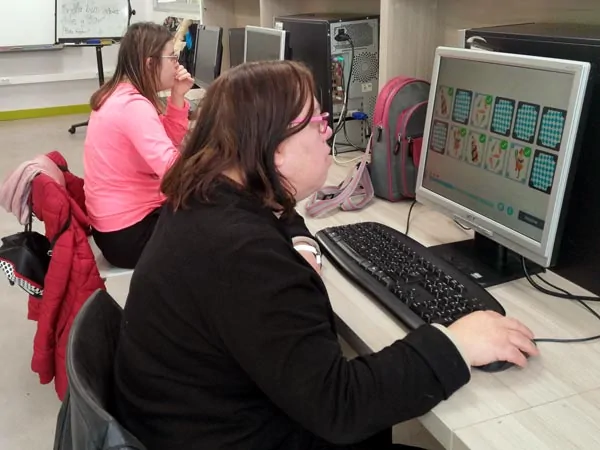
2. Training in activities of daily living (ADLs)
We work on activities of daily living in order to maintain and enhance independence of our users, helping them improve in their day-to-day performance. We also run autonomous leisure groups, which manage their leisure time together with their friends, periodically planning the outings they most want to do around the city and looking for the resources and means they need to do so.
3. Social skills
Training in social skills is fundamental in intellectual disability, since it happens that in certain situations they find it difficult to understand the social context in which they operate, as well as to identify and effectively recognize the feelings that arise in themselves and in others.
4. Urban garden
We go year-round to an urban garden, which we cultivate, tend and harvest at different times of the year.
5. Training activity
We offer a variety of activities designed around our users’ preferences, including newspaper, radio, adult education, horticulture, etc.
6. Physical activity
Throughout the year we carry out different activities so that our users remain physically active, among which we find psychomotricity, Zumba and a project of inclusive dance.
7. Manipulative activities
We handmade details for weddings, christenings, communions, diaper cakes for newborns, personalized cloth bags and many other self-produced products. We also carry out manual work for external companies.
8. Community activities
9. Recreational activities
10. Visits, trips
And many other activities for people with Down syndrome are developed throughout the week at Down Zaragoza.
At Fundación Down Zaragoza we will continue striving and working to create new projects that adapt to and meet the needs of people with intellectual disabilities throughout their adult life and especially during their aging stage.
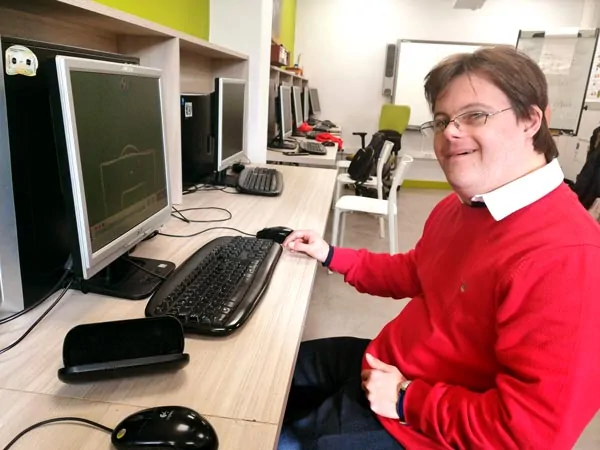
If you liked this article about activities for people with Down syndrome, you may also be interested in the following:
“This article has been translated. Link to the original article in Spanish:”
Actividades para personas con síndrome de Down
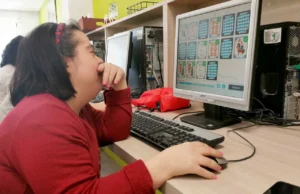

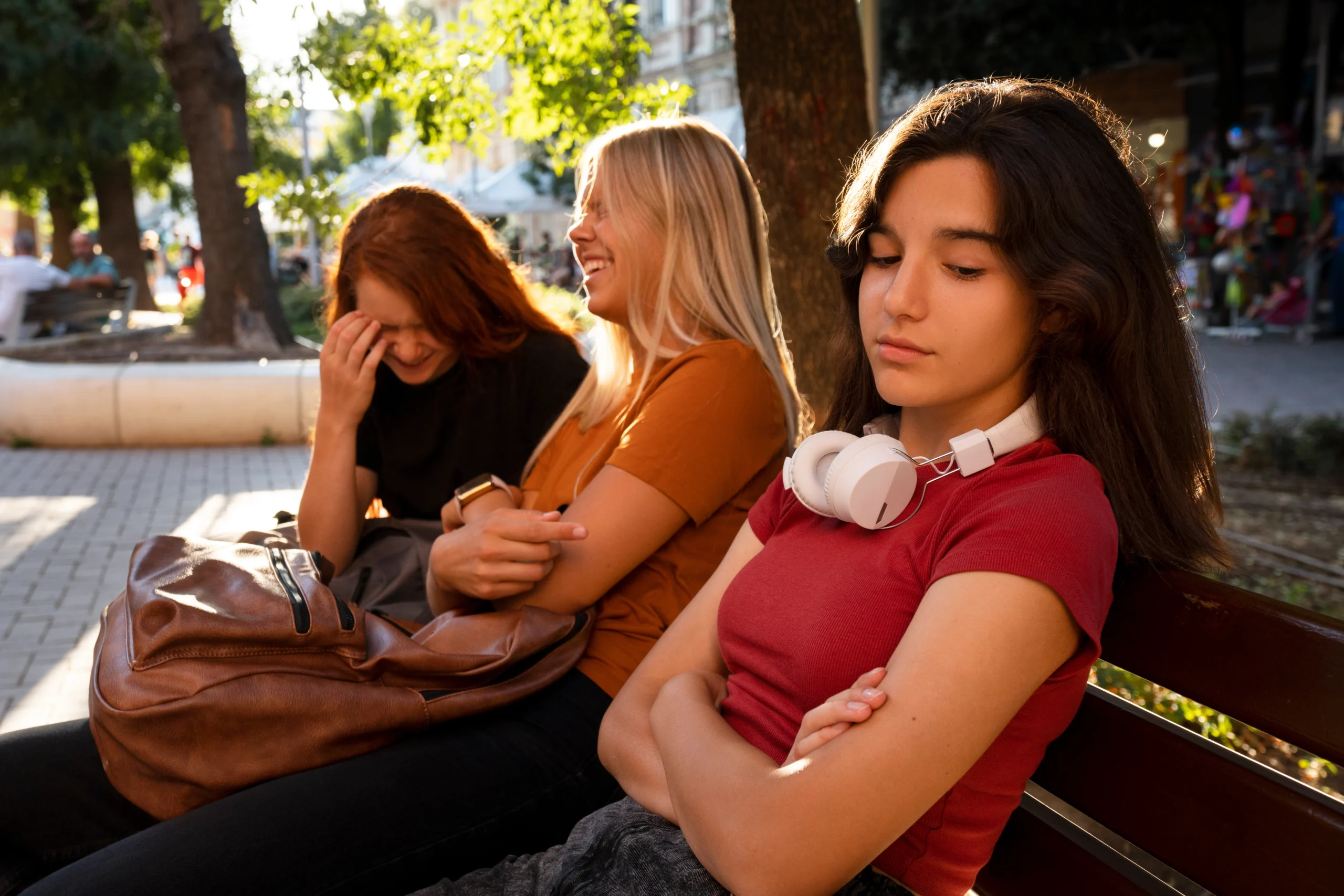

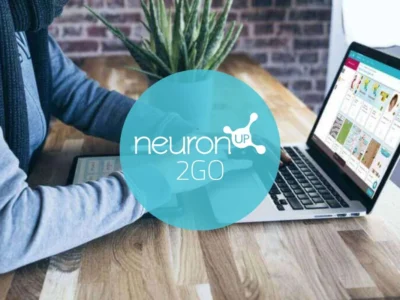

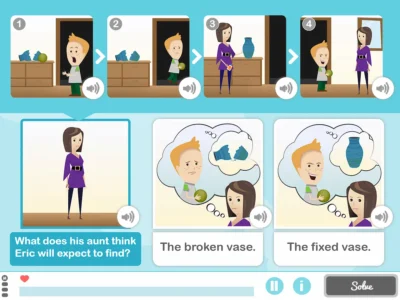
 5 cognitive stimulation activities for people with Down syndrome
5 cognitive stimulation activities for people with Down syndrome
My son had Down Syndrome and mental stimulation and physical activities that it seems your program provides. I would like more information and clarity about his this Nearon Up works please. My son has loss a lot of his communication skills especially during Covid and now refuses to cooperate with the activity program we had him in. He now has a physical issue that requires that he be active.